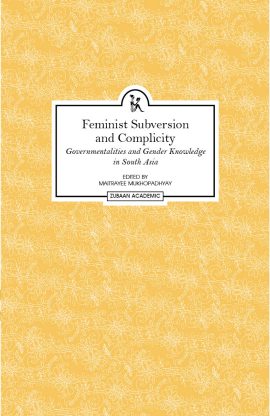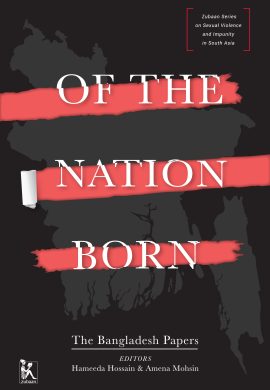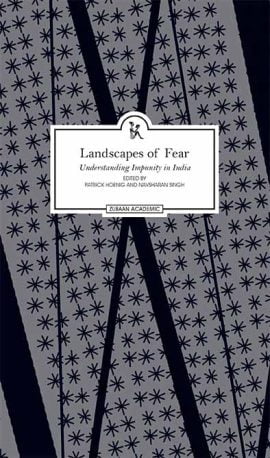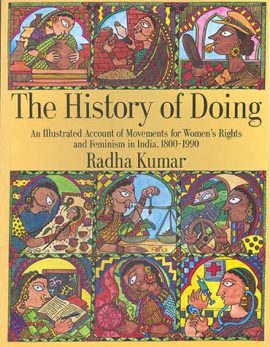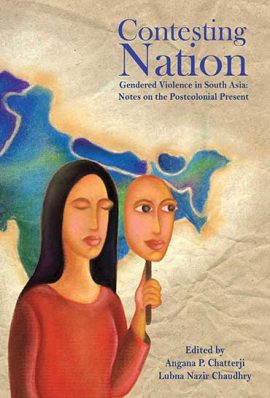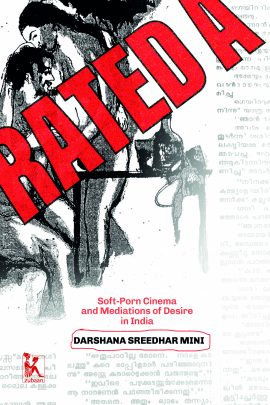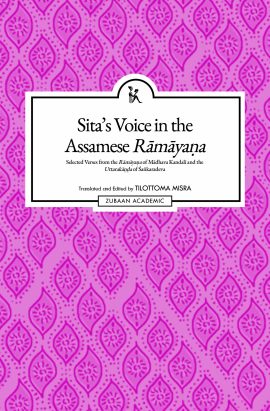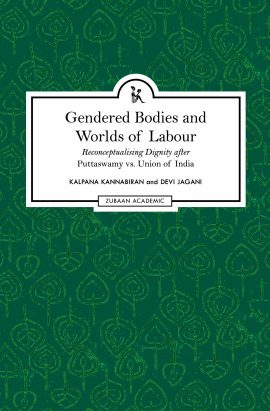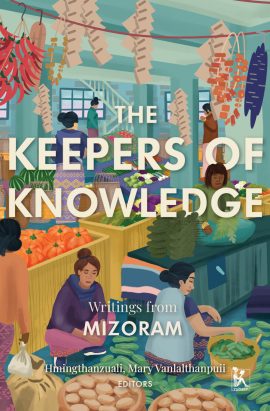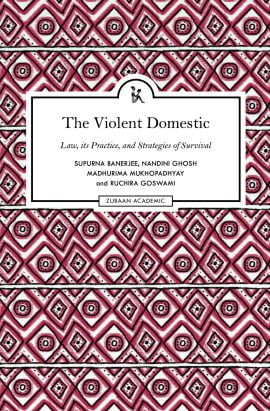No products in the cart.
Return To Shop
Log in / Sign in
Login
Register
The Spectral Wound: Sexual Violence, Public Memories, and the Bangladesh War of 1971
₹ 795
Following the 1971 Bangladesh War, the Bangladesh government publicly designated the thousands of women raped by the Pakistani military and their local collaborators as birangonas, ("brave women”). Nayanika Mookherjee demonstrates that while this celebration of birangonas as heroes keeps them in the public memory, they exist in the public consciousness as what Mookherjee calls a spectral wound. Dominant representations of birangonas as dehumanized victims with disheveled hair, a vacant look, and rejected by their communities create this wound, the effects of which flatten the diversity of their experiences through which birangonas have lived with the violence of wartime rape. In critically examining the pervasiveness of the birangona construction, Mookherjee opens the possibility for a more politico-economic, ethical, and nuanced inquiry into the sexuality of war.
Read more
Feminist Subversion and Complicity: Governmentalities and Gender Knowledge in South Asia
From ₹ 398
Feminist Subversion and Complicity interrogates a specific form of feminist practice, that which has involved engaging with state and international institutions to insert gender knowledge in their development interventions. Bringing together contributions from eight feminists located in very different kinds of institutions and spaces from Bangladesh, Nepal, Pakistan, Sri Lanka and India, this book is the outcome of a deeply reflexive process to produce a critique from within of this present day feminist practice. An array of experiences and encounters are scrutinised from bringing feminist perspectives to governmental projects on education, health, and legal reform to transformations in the discourses and practices of women’s movements and feminisms as they encountered developmentalisms. The writers show that feminist politics is not merely assimilated in governmental projects but that it interrupts these projects even as it is assimilated; a feminist politics in which complicity is often a subversive activity, is destabilizing and contesting of meaning.
Select format
This product has multiple variants. The options may be chosen on the product page Of the Nation Born: The Bangladesh Papers
From ₹ 636
The Sexual Violence and Impunity in South Asia research project (coordinated by Zubaan and supported by the International Development Research Centre) brings together, for the first time in the region, a vast body of knowledge on this important – yet silenced – subject. Six country volumes (one each on Bangladesh, Nepal, Pakistan, Sri Lanka, and two on India) comprising over fifty research papers and two book-length studies detail the histories of sexual violence and look at the systemic, institutional, societal, individual and community structures that work together to perpetuate impunity for perpetrators.This volume focuses on Bangladesh, a nation born in 1971, in a birth that was as marked by bloodshed as it was by sexual violence. The history of widespread sexual violence, and incidents of sexual slavery, as well as the absence of accountability for the perpetrators, is by now well known. The essays here address the structural dynamics of impunity at the individual and societal levels, looking not only at the conditions that go into its creation, but also the elements that fuel it. They ask what helps it to become so embedded and point to its human, global and national costs. Together they explore the ways in which the women’s movement and feminist practice have worked to demand accountability and recognition for the victims and survivors of sexual violence, challenging the impunities embedded in the patriarchal structures of Bangladeshi society. In doing so, they bear witness to the continuing efforts of women’s groups in Bangladesh to give this crucial issue the attention that it deserves, for without that, justice for victims and survivors, will remain elusive.
Select format
This product has multiple variants. The options may be chosen on the product page Fault Lines of History: The India Papers II
From ₹ 635
The Sexual Violence and Impunity in South Asia research project (coordinated by Zubaan and supported by the International Development Research Centre) brings together, for the first time in the region, a vast body of knowledge on this important – yet silenced – subject. Six country volumes (one each on Bangladesh, Nepal, Pakistan, Sri Lanka, and two on India) comprising over fifty research papers and two book-length studies detail the histories of sexual violence and look at the systemic, institutional, societal, individual and community structures that work together to perpetuate impunity for perpetrators.This volume, the second on India, addresses the question of state impunity, suggesting that on the issue of the violation of human and civil rights, and particularly in relation to the question of sexual violence, the state has been an active and collusive partner in creating states of exception, where its own laws can be suspended and the rights of its citizens violated. Drawing on patterns of sexual violence in Kashmir, the Northeast of India, Chhattisgarh, Haryana and Rajasthan, the essays together focus on the long histories of militarization and regions of conflict, as well as the ‘normalized’ histories of caste violence which are rendered invisible because it is convenient to pretend they do not exist. Even as the writers note how heavily the odds are stacked against the victims and survivors of sexual violence, they turn their attention to recent histories of popular protest that have enabled speech. They stress that while this is both crucial and important, it is also necessary to note the absence of sufficient attention to the range of locations where sexual violence is endemic and often ignored. Resistance, speech, the breaking of silence, the surfacing of memory: these, as the writers powerfully argue, are the new weapons in the fight to destroy impunity and hold accountable the perpetrators of sexual violence.
Select format
This product has multiple variants. The options may be chosen on the product page Landscapes of Fear: Understanding Impunity in India
From ₹ 398
Why does the world’s largest democracy turn a blind eye to systematic violations of human rights in its periphery?Drawing on the findings of a comparative research project, this volume tackles a set of intricate questions about the workings of impunity in India. How do victims of abuse and survivors of sexual violence end up being denied justice? What do those on the margins—those with the wrong sex, wrong identity markers, wrong political leanings— tell us about violence by state and non-state actors?Bringing together senior academics, civil society leaders and fresh voices from across India, the volume offers analysis—contextual, structural and gendered—and breaks new conceptual ground on the underbelly of India Shining. The volume contains testimonies that were collected during fieldwork in four states.CONTRIBUTORS: Sanjay Barbora | Shahana Basavapatna | Anjuman Ara Begum | Uma Chakravarti | Warisha Farasat | Satish K. Jain | Ram Narayan Kumar | Harsh Mander | Bhagat Oinam
Select format
This product has multiple variants. The options may be chosen on the product page The History of Doing: An Illustrated Account of Movements for Women’s Rights and Feminism in India, 1800-1990
From ₹ 560
A thematic history of the women's movement in India both before and after independence, this book covers the period from the nineteenth century to the present day. It looks at how women's issues were raised, initially by men and as part of the movements for social reform, and then with the involvement of women in the nationalist movement, by women themselves. Using photographs, old and new documents, excerpts from letters, books and informal writings, the author documents the growing involvement of women and the formation of the early women's organizations, she examines the foregrounding of the `women's issue' during the reform and nationalist movements and its subsequent disappearance from the agenda of public debate until the post independence period of the sixties and seventies when it surfaces again.Radha Kumar is Senior Fellow and Director of the project on Ethnic Conflict, Partition and Post-Conflict Reconstruction at the Council on Foreign Relations in New York. She is author of Divide and Fall: Bosnia in the Annals of Partition. She was formerly Executive Director, Helsinki Citizen's Assembly.
Select format
This product has multiple variants. The options may be chosen on the product page Contesting Nation: Gendered Violence in South Asia: Notes on the Postcolonial Present
From ₹ 555
An innovative collection of essays on events and dynamics across South Asia, this volume addresses how violence marks the present in wars of direct and indirect conquest. Anti-colonial struggles that achieved independence to form postcolonial nation-states have consolidated themselves through prodigious violence that defines and disfigures communities and futures. This book examines the very borders such brutality enshrines and its intimate inscriptions upon bodies and memories, examining the performance of gendered violence through the spectacular and in everyday life, through wars, nationalisms and displacements. Women in and of South Asia offer inspired, gendered and contested histories of the discontinuous present, excavating nation-making and its intersections with projects of militarisation and cultural assertion, modernisation and globalisation, noting how Gujarat, post-9/11 mobilisations, and the war on Afghanistan and Iraq by Empire, signify the rapidity with which brutal events continue to encompass lives and cultures globally.
Select format
This product has multiple variants. The options may be chosen on the product page Rated A: Soft-Porn Cinema and Mediations of Desire in India
From ₹ 490In the 1990s, India’s mediascape saw the efflorescence of edgy soft-porn films in the Malayalam-speaking state of Kerala. In Rated A, Darshana Sreedhar Mini examines the local and transnational influences that shaped Malayalam soft-porn cinema—such as vernacular pulp fiction, illustrated erotic tales, and American exploitation cinema—and maps the genre’s circulation among blue-collar workers of the Indian diaspora in the Middle East, where pirated versions circulate alongside low-budget Bangladeshi films and Pakistani mujra dance films as South Asian pornography. Through a mix of archival and ethnographic research, Mini also explores the soft-porn industry’s utilization of gendered labor and trust-based arrangements, as well as how actresses and production personnel who are marked by their involvement with a taboo form negotiate their social lives. By locating the tense negotiations between sexuality, import policy, and censorship in contemporary India, this study offers a model for understanding film genres outside of screen space, emphasizing that they constitute not just industrial formations but entire fields of social relations and gendered imaginaries.
______________________________________________________________________________________A model for future film scholars. The decade-long research that went into making this book is evident in its rich historical details, insightful conversations, and multisited fieldwork. Perhaps even more impressive is Darshana Sreedhar Mini's ability to pull together such vast and diverse material in a riveting story, so absorbing and beautifully written that I often felt like I was reading a novel. This exemplary work will produce lively discussions about film historiography, diaspora, stardom, authorship, and sexuality.—Monika Mehta, author of Censorship and Sexuality in Bombay Cinema, 2011In Rated A: Soft-Porn Cinema and Mediations of Desire in India, Darshana Mini takes readers on a truly fascinating exploration of Malayalam soft-porn cinema that emerged in the 1980s and captivated millions of viewers across India and the Middle East. Extensive archival and ethnographic research reveals the local and global influences that shaped the genre, the social and gendered dynamics of the industry, and the complex politics of sexuality and censorship in contemporary India. By challenging the dominant narratives of pornography as a Western phenomenon, this book provides a new model for studying soft-core film genres in diverse cultural contexts.—Clarisa Smith, One for the Girls! The Pleasures and Practices of Reading Women’s Porn(2007), Co-editor Porn Studies JournalRated A is a fascinating cultural history of Malayalam soft porn cinema, and moreover of its afterlives - how it is remediated across a range of sites, reverberating in the cultural imagination. In the unfolding of that history, Darshana Mini shows how soft porn and the debates and desires that it provokes are entangled with the building of gender, sexuality, politics, and social life. A major new contribution to the study of pornographies.—Feona Attwood, author of Sex Media (2017) and Co-editor of Porn Studies Journal______________________________________________________________________________________DARSHANA SREEDHAR MINI is Assistant Professor of Film at the University of Wisconsin–Madison and co-editor of South Asian Pornographies: Vernacular Formations of the Permissible and the Obscene.
Academic, Academic, Books, Books from the North East, Books from the North East, e-Books, New Releases, New Releases
Sita’s Voice in the Assamese Rāmāyaṇa
From ₹ 560Sita’s Voice in the Assamese Rāmāyaṇa is a translation of select verses from the Assamese Saptakāṇḍa Rāmāyaṇa of Mādhava Kandalī, Śaṅkaradeva and Madhavdeva, written between the 14th-15th centuries CE. This vernacular rendition of the Vālmīki Rāmāyaṇa has been translated with a scholarly introduction by Tilottoma Misra. The selected verses represent a distinctive creative rendition of the Vālmīki text from the region of Assam by adding new emotional and philosophic dimensions to it. Especially in the Uttarakāṇḍa ascribed to Śaṅkaradeva, Sita’s voice acquires a unique quality in her final rejection of Rāma thereby expressing her ultimate disillusionment with him, the much-acclaimed paragon of all virtues.
“Others may praise him for all his deeds. But Death incarnate is Rāma for me.”
“I have never heard of a husband more unkind than he. O how can I look upon him again with love and pride?”
—Uttarakāṇḍa of Śaṅkaradeva
______________________________________________________________________________________
TILOTTOMA MISRA writes on literatures from Northeast India, particularly Assam, and on gender and the nationality question. She is author of Swarnalata (1991, English translation 2012, Zubaan), Louhitya Sindhu (1997), Kameikhar Ghar (2013, English translation High Wind, 2020, Zubaan), Literature and Society in Assam: A Study of the Assamese Renaissance 1826-1926 (1987) and editor of the Oxford Anthology of Writings from North-East India (2011). She has translated and edited Gunabhiram Barua’s Ramnabami-Natak (2007). She was awarded the Ishan Puraskar by Bharatiya Bhasha Parishad for Swarnalata, and the Lummer Dai Award by the Arunachal Pradesh Literary Society and the Assam Sahitya Sabha for Kameikhar Ghar.Gendered Bodies and Worlds of Labour
From ₹ 495This book presents a brilliant reading of the unanimous decision of the nine-judge bench of the Supreme Court of India in the case of Justice KS Puttaswamy (Retd.) and Another vs. Union of India and Others (‘Puttaswamy’). The 2017 judgment protects the right to privacy as a fundamental right, and guarantees the right to life with dignity, the right to personal liberty and the right to move the court against unconstitutional actions by the state.
The authors examine the implications of Puttaswamy to understanding labouring bodies (in their multiplicity) and their worlds of work. They explore the gendered dimensions of the right to privacy and its relation to labour rights, sexual safety, and bodily integrity, offering a dynamic interpretation of the right to privacy and related rights of dignity, liberty, and equality. Using the Constitution, Kannabiran and Jagani anchor labour rights in Puttaswamy to advance claims-making and emphasise collective struggles for justice and resistance to oppression as the most productive route to conceptualising an idea of justice in the realms of labour.
Further, the monograph emphasises the need to popularise constitutional conversations beyond the courts and holds valuable lessons for women’s and labour rights movements. Drawing from a range of scholarly works and case law to offer a fresh understanding of labour that does not rely on gender binaries, the authors initiate conversations on human dignity, intersectional discrimination, and resistance to reinstating labouring bodies in workplaces. This work opens up new opportunities for feminist and labour studies scholars, trade unions, and courts to explore interdisciplinary intersections and frame claims for more just, fair, and equal working environments.
Kalpana Kannabiran and Devi Jagani’s work inspires both hope and anxiety, as they challenge us to build intellectual and on-ground solidarities that cross disciplinary boundaries, to support those who are most marginalised.
— Navsharan Singh, independent researcher, writer, and activist
______________________________________________________________________________________
DEVI JAGANI is an independent legal researcher and lawyer. She graduated from the Institute of Law, Nirma University in 2018 with a BA, LLB (Hons.) and from the University of Oxford in 2019 with a Bachelor of Civil Law (BCL). Her areas of interest include jurisprudence, constitutional law, criminal law, gender studies, human rights, and discrimination law.
KALPANA KANNABIRAN is a sociologist and legal researcher based in Hyderabad and is currently Distinguished Professor at the Council for Social Development, New Delhi. She has published widely in sociology, gender studies, human rights, and law with a focus on India. She is the co-author of Gender Regimes and the Politics of Privacy: A Feminist Re-Reading of Puttaswamy vs. Union of India (Zubaan 2021).
The Keepers of Knowledge: Writings from Mizoram
From ₹ 445
An old Mizo proverb holds that a woman’s wisdom takes her only as far as the village stream. Such proverbs and beliefs have weighed heavily on the journeys of Mizo women such that even today, more than a century after the introduction of the written alphabet in Mizoram, there are barely any narratives by women in the existing body of published texts. Women’s limited access to speaking out in the time or orality sadly did not transform into opportunities to write and publish. And yet, when the editors of this volume—perhaps the first ever such anthology in the state—set out to search for writings by women, they were delighted and surprised to find a wealth of stories, narratives, personal accounts, poems, art and more. These now grace the pages of this remarkable first-of-its-kind book.
Contributors: Babie Remi | Baby Lalsangzeli | Catherine Lalhruaitluangi Chhangte | Cherrie Lalnunziri Chhangte | Cindy Zothanpuii Tlau | Dawngi Chawngthu | Debbie Rinawmi | Diddo Khiangte | Hannah Lalhlanpuii | Hmingthanzuali | Jacqueline Zote | Janet Lalremsangi | Jerusha Lalremruatfeli | Kristina Z. Zama | Laldinpuii | Lalhlimpuii Pachuau | Lalhmangaihi Chhakchhuak | Lalhming Mawii (Amoii) | Lalhriatchhungi Ralte | Lalramnghaki Ralte | Lalremruati Ngente | Lalrinmawii (Mamawii) Khiangte | Lalrofeli | Lalropari (Pari) | Lalruatkimi Jongte | Lalsangpuii | Lalthangmawii Chhangte | Lalthansangi Fanai | Lalthansangi Ralte | L. V. Lalsangkimi | Malsawmi Jacob | Mary Vanlalthanpuii | Rebecca Lalhmangaihzuali | Rosaline Varsangzuali | Zirtei Mangpa | Zohmangaihi | Zualteii Poonte
HMINGTHANZUALI teaches at the Department of History & Ethnography, Mizoram University where she has spent over a decade. She has a PhD from Hyderabad Central University. She has published a number of research papers on gender and women’s history in northeast India and has presented her work at academic conferences in India and abroad. She is a recipient of the Zubaan-Sasakawa Peace Foundation Grant for Young Researchers from the Northeast (2019-2020).MARY VANLALTHANPUII has been a research fellow at the Asiatic Society, Kolkata (2017-2021) and was a part time lecturer at Loreto College, Kolkata. She completed her PhD from Calcutta University. Her areas of interest include the role of women in formal politics and the informal politics of the Church, and she has published and presented nationally and internationally on these. She is a recipient of the Zubaan-Sasakawa Peace Foundation Grant for Young Researchers from the Northeast (2018-2019).
Select format
This product has multiple variants. The options may be chosen on the product page Contributors: Babie Remi | Baby Lalsangzeli | Catherine Lalhruaitluangi Chhangte | Cherrie Lalnunziri Chhangte | Cindy Zothanpuii Tlau | Dawngi Chawngthu | Debbie Rinawmi | Diddo Khiangte | Hannah Lalhlanpuii | Hmingthanzuali | Jacqueline Zote | Janet Lalremsangi | Jerusha Lalremruatfeli | Kristina Z. Zama | Laldinpuii | Lalhlimpuii Pachuau | Lalhmangaihi Chhakchhuak | Lalhming Mawii (Amoii) | Lalhriatchhungi Ralte | Lalramnghaki Ralte | Lalremruati Ngente | Lalrinmawii (Mamawii) Khiangte | Lalrofeli | Lalropari (Pari) | Lalruatkimi Jongte | Lalsangpuii | Lalthangmawii Chhangte | Lalthansangi Fanai | Lalthansangi Ralte | L. V. Lalsangkimi | Malsawmi Jacob | Mary Vanlalthanpuii | Rebecca Lalhmangaihzuali | Rosaline Varsangzuali | Zirtei Mangpa | Zohmangaihi | Zualteii Poonte
HMINGTHANZUALI teaches at the Department of History & Ethnography, Mizoram University where she has spent over a decade. She has a PhD from Hyderabad Central University. She has published a number of research papers on gender and women’s history in northeast India and has presented her work at academic conferences in India and abroad. She is a recipient of the Zubaan-Sasakawa Peace Foundation Grant for Young Researchers from the Northeast (2019-2020).MARY VANLALTHANPUII has been a research fellow at the Asiatic Society, Kolkata (2017-2021) and was a part time lecturer at Loreto College, Kolkata. She completed her PhD from Calcutta University. Her areas of interest include the role of women in formal politics and the informal politics of the Church, and she has published and presented nationally and internationally on these. She is a recipient of the Zubaan-Sasakawa Peace Foundation Grant for Young Researchers from the Northeast (2018-2019).
The Violent Domestic: Law, its Practice, and Strategies of Survival
From ₹ 475
In 2005, after considerable campaigning by women's groups, the Indian government brought in an important new law, the Protection of Women from Domestic Violence Act (PWDVA). A civil law, the PWDVA was meant to combat violence against women in familial and intimate spaces. In The Violent Domestic, the authors ask: how effective has this law been? Have there been any changes in institutional regimes and their politics as a result of this legislation? They look at seven districts of West Bengal and interrogate, through the testimonies of survivors, whether the law reshapes the domestic, or whether the embeddedness of violence in the domestic is so complete that change through law must necessarily be partial and imperfect.Importantly, the questions the authors ask go beyond the heteronormative approach that centres only the married woman in the discourse around domestic violence. They include the voices of lesbian and transgender women, as well as women with physical and psycho-social disabilities. Given these unique insights, The Violent Domestic will be a welcome addition to legal and gender studies.
SUPURNA BANERJEE is faculty at the Institute of Development Studies Kolkata. She researches labour, gender, violence, migration, and intersectionality. Her published works include the monograph Activism and Agency in India: Nurturing Resistance in Tea Plantations (2017); Limits of Bargaining: Capital, Labour and the State in India (2019), which she co-authored; and publications in the journals Gender, Work and Organisation, Oral History, and Journal of South Asian Development.NANDINI GHOSH is faculty at the Institute of Development Studies Kolkata. Her areas of interest are qualitative research methodology, sociology of gender, marginalization, and social exclusion and social movements. Her monograph Impaired Bodies Gendered Lives: Everyday Realities of Disabled Women was published in 2016. She has edited Interrogating Disability in India: Theory and Practice (2016), and co-edited Pratyaha Everyday Lifeworlds: Dilemmas, Contestations and Negotiations (2015) and Caste and Gender in Contemporary India: Power, Privilege and Politics (2018). MADHURIMA MUKHOPADHYAY is an assistant professor at Amity Institute of English Studies and Research, Amity University Kolkata. She has worked as a post-doctoral research fellow and as a research associate at the Institute of Development Studies Kolkata from 2016 to 2018, and was awarded her PhD from the Faculty of Arts, Jadavpur University. Her publications have variously explored women’s travel writing in colonial Bengal, marriage and intermediation in global India, and include translations of articles, book reviews, reports in various journals, edited volumes, newsletters, and editorials in leading Bengali and English dailies.RUCHIRA GOSWAMI teaches sociology, human rights, gender and law, child rights, and film and law at the National University of Juridical Sciences, Kolkata (NUJS). She was formerly head of the Centre for Child Rights, NUJS and a British Chevening scholar in Human Rights from the London School of Economics. She has recently worked on two research projects: ‘Implementation of the Protection of Children from Sexual Offences Act in West Bengal’ (2016), UNICEF and ‘Reconceptualizing Domestic Violence: Shifting Discourses Within the Women’s Movement’ (2016-18), ICSSR.
Select format
This product has multiple variants. The options may be chosen on the product page SUPURNA BANERJEE is faculty at the Institute of Development Studies Kolkata. She researches labour, gender, violence, migration, and intersectionality. Her published works include the monograph Activism and Agency in India: Nurturing Resistance in Tea Plantations (2017); Limits of Bargaining: Capital, Labour and the State in India (2019), which she co-authored; and publications in the journals Gender, Work and Organisation, Oral History, and Journal of South Asian Development.NANDINI GHOSH is faculty at the Institute of Development Studies Kolkata. Her areas of interest are qualitative research methodology, sociology of gender, marginalization, and social exclusion and social movements. Her monograph Impaired Bodies Gendered Lives: Everyday Realities of Disabled Women was published in 2016. She has edited Interrogating Disability in India: Theory and Practice (2016), and co-edited Pratyaha Everyday Lifeworlds: Dilemmas, Contestations and Negotiations (2015) and Caste and Gender in Contemporary India: Power, Privilege and Politics (2018). MADHURIMA MUKHOPADHYAY is an assistant professor at Amity Institute of English Studies and Research, Amity University Kolkata. She has worked as a post-doctoral research fellow and as a research associate at the Institute of Development Studies Kolkata from 2016 to 2018, and was awarded her PhD from the Faculty of Arts, Jadavpur University. Her publications have variously explored women’s travel writing in colonial Bengal, marriage and intermediation in global India, and include translations of articles, book reviews, reports in various journals, edited volumes, newsletters, and editorials in leading Bengali and English dailies.RUCHIRA GOSWAMI teaches sociology, human rights, gender and law, child rights, and film and law at the National University of Juridical Sciences, Kolkata (NUJS). She was formerly head of the Centre for Child Rights, NUJS and a British Chevening scholar in Human Rights from the London School of Economics. She has recently worked on two research projects: ‘Implementation of the Protection of Children from Sexual Offences Act in West Bengal’ (2016), UNICEF and ‘Reconceptualizing Domestic Violence: Shifting Discourses Within the Women’s Movement’ (2016-18), ICSSR.
Contact Us
© Zubaan 2019. Site Design by Avinash Kuduvalli.
Payments on this site are handled by CCAvenue.


